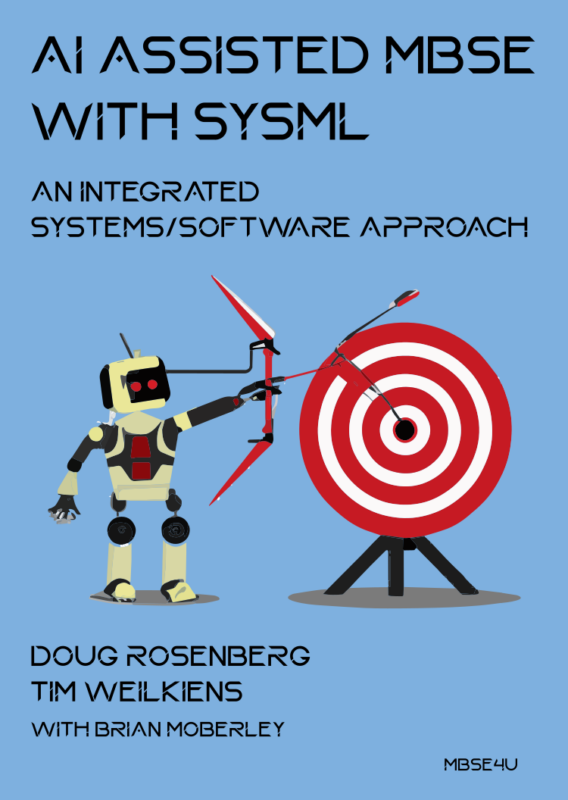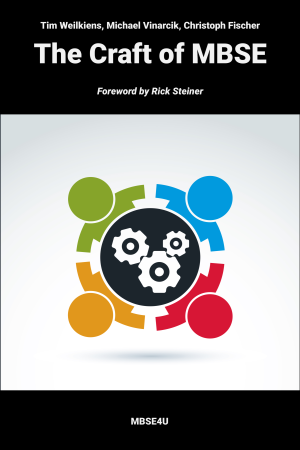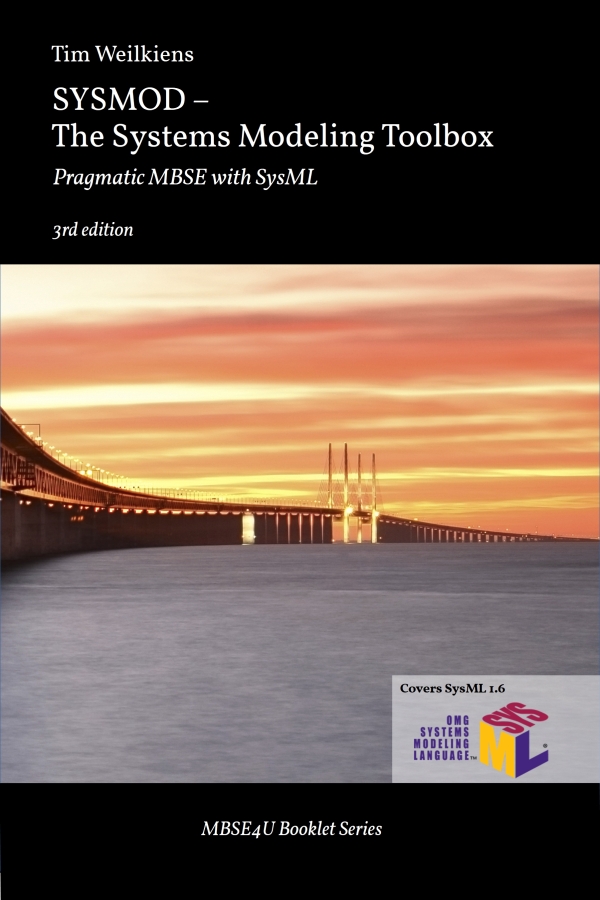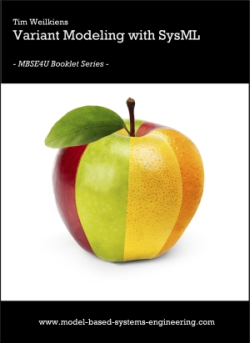
Modeling is the art of being concrete on an abstract level.
Tim is a member of the executive board of the German consulting company oose, an MBSE coach, and an active member of the OMG and INCOSE communities. He has written sections of the initial SysML specification and is a co-chair of the SysML v2 finalization task force.
As a coach, he has advised many companies in different domains. His insights into their challenges are one source of his experience that he shares.
Tim is a co-host of the MBSE podcast.
All books written by Tim Weilkiens including books not published by MBSE4U can be found here.
AI Assisted MBSE with SysML
Will be published in 2024! Stay tuned!
The book highlights the significance of software in system specifications and introduces an approach by using an Artificial Intelligence (AI) as a subject matter expert. The book introduces a novel approach, employing Artificial Intelligence (AI) as a subject matter expert to enrich the process of engineering artifact modeling using SysML.
More info →The Craft of MBSE
Unlock the Secrets of MBSE Craftsmanship: Transform Your Organization's Engineering Culture and Excel in Model-Based Systems Engineering. Discover the Art and Philosophy Behind True Mastery.
More info →SYSMOD – The Systems Modeling Toolbox – Pragmatic MBSE with SysML
SYSMOD is an MBSE toolbox for pragmatic modeling of systems. It is well-suited for use with SysML. This book offers a set of methods with roles, inputs, and outputs, concrete modeling guidances, and examples showing how the methods can be applied with SysML.
- Requirements modeling, System Context, Use Cases
- Functional, Logical and Product Architectures
- Modeling guidances on how to create a SysML model
- Full-fledged SysML example
- Best Practices
- Complete definition of a profile for SYSMOD
- Adoption of MBSE in an Organization
- SysML v1.6 in a Nutshell
Variant Modeling With SysML
SysML does not provide explicit built-in language constructs to model variants. Nevertheless, SysML is useful to create a model for variants. The VAMOS method presented in the book Variant Modeling with SysML is one option on how to model variants with SysML. It uses the profile mechanism of SysML to extend the language with a concept for variant modeling. The concepts are core, variation point, variation, variant, variant constraint, and variant configuration. The book shows how to apply the concepts with standard SysML modeling tool.
More info →The New Engineering Game – Strategies for Smart Product Engineering
The engineering of products faces an increasingly complex and dynamic environment. Megatrends like the Internet of Things (IoT) and the industrial internet respectively Industry 4.0 change the rules on the field. They require a new kind of engineering and thinking. Only companies that can adapt themselves to the frequent and partially disruptive changes in the complex and dynamic markets are successful in the long term.
More info →








